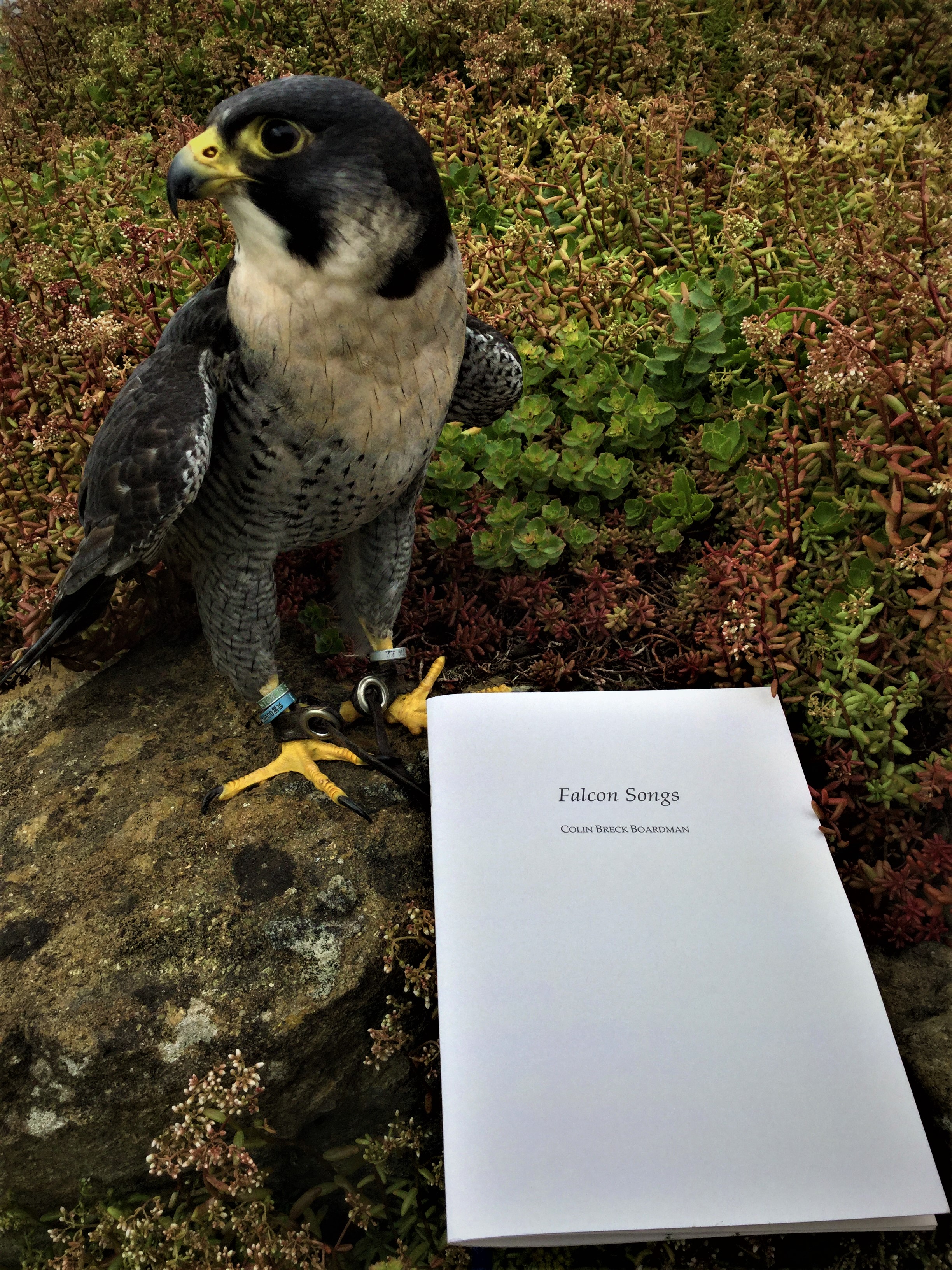Falcon Songs
9 July 2020

For a writer or a poet, it is always exciting to finally have some work in print, be it in a magazine or in book form. It is therefore with great pleasure that I have put together this collection of verse which was produced upon my return from Italy a decade ago. For me, poetry is a voyage of discovery through ideas and emotions, to hopefully reach the distant island of another mind. As such, I wish this collection well upon its travels.
This first edition pamphlet of poems was made possible with the aid of two Old Stoics. My thanks go to Anna Semler (Nugent 05), the Old Stoic Society Director, for putting me in touch with Christopher Wintle (Chatham 67), Director of Plumbago Publishing, and to Christopher for guiding me through the editing process.
These poems were written between 2010 and 2013 and bring together my interests in falconry and sixteenth-century literature. Using birds of prey as a metaphor, I explore themes of life and death, love and loss, and poetry and creativity, while at the same time I ponder human ideas, relationships, and existence from personal and fictional points of view. I cast the poems as Shakespearean sonnets as I find the form provides an effective and elegant vehicle for my ideas. Yet each sonnet is ‘anamorphic’. An anamorphic poem deploys ambiguous diction so that the sequence of the poem in its entirety can be logically related to two or more subjects depending upon the perspective of the reader. In this way the whole poem can describe each unrelated perspective both separately and concurrently. When, in Shakespeare’s Taming of the Shrew Act IV, scene 1, Petruccio says ‘My falcon now is sharp and passing empty’, he describes the taming of a bird at the same time that he refers to his wife. In the same way I treat the birds and the other subjects as a single entity.
However, my poems expand this possibility. Say that I wish to combine the idea of a tiger hunting a deer with the idea of a bird of prey off hunting, this would be an anamorphic poem with two subjects. But if I also wished to apply the metaphor of a man meeting a woman in a field, this would be the third subject; to describe a reader reading a poem, this would be the fourth, and so on. In that case the poem would intentionally describe four subjects and thus adopt at least four points of view: a tiger hunting a deer, a bird of prey off hunting, a man meeting a woman, and a reader reading a poem.
But how is all this possible? In poem 6 below, ‘Shifting through my feathers …’, the narrator is a falcon explaining how it preens its feathers, as the vocabulary shows: shifting, feathers, adjusting, pick, preen, itches and so forth. In the second meaning, the poet explains how he makes and edits poems: feathers [i.e. a quill pen], pick and preen, adjusting for usefulness, every line, itches and so forth. In the third meaning, the bird’s plumage is melded with the human protagonist and we arrive at a metaphor for someone getting dressed. Finally, the use of the first person invokes abstractions such as Preparation, Creativity and Vanity. When, in the final line, the narrator says ‘Then I await the warming sun, and the returning rain’, we hear the bird, the poet, the protagonist dressed for the occasion, and an overall state of preparedness.
Shifting through my feathers I often pick and preen,
Adjusting for their usefulness each and every line,
Trying to attend to those itches quite unseen,
Some appearing radical while others quite benign.
Without mercy must I choose what is seeming right,
Ripping out the insubstantial from the hardened core,
Ever searching with incision for some sharp insight,
And letting blunt or broken pieces fall upon the floor.
Though I wax and wane, and winnow out each end,
To rustle up some downy dust my feelings to absorb,
I rouse my inspiration up into a cloud and then
I listen to my heartbeat spinning round this dusty orb.
When every piece is locked in place its beauty to contain,
Then I await the warming sun, and the returning rain.
In this collection, the topics range from mythological monsters to real animals, from biological behaviours to human relationships, from specific personal moments to general principles. One only has to follow the trail of cues and clues within the poetic cloud to bring these hidden subjects out into the open.
If anyone is interested in learning more or buying Colin's work, please email him to discuss.
Colin Breck Boardman (Grenville 87)